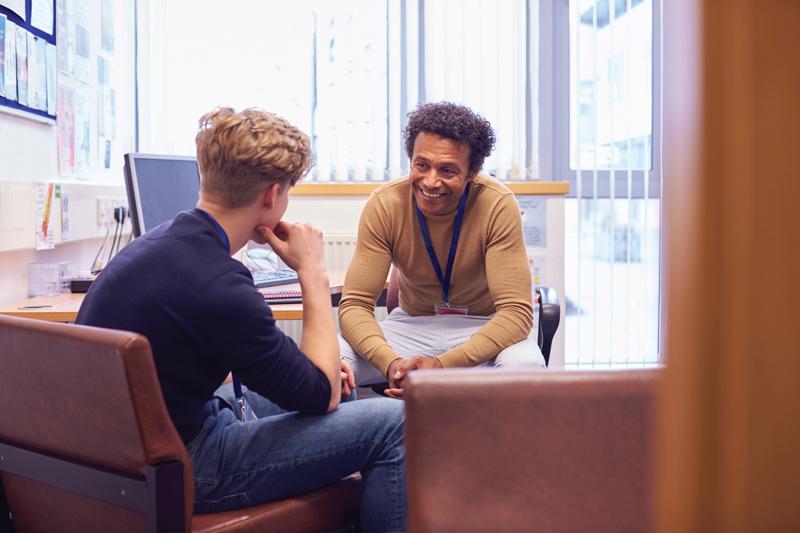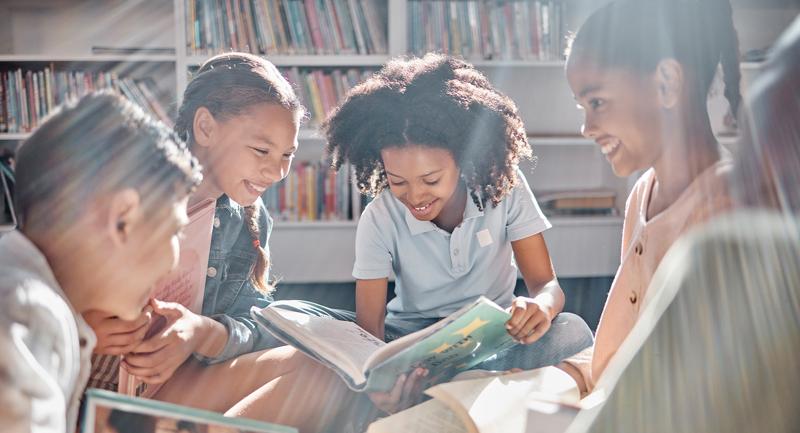One unchallenged tenet of our national school renewal movement is that parents should be more involved in all aspects of schooling, including making decisions about curriculum and teaching. This sensible idea is embedded in virtually all of the local and national school reform documents now papering the country. The trouble is, there are precious few schools where parents actually are acting as curriculum partners or leaders. Why the gap? Is parent involvement just another ceremonial platitude? An impossible dream? Or is something getting in the way?
The first problem, of course, is that many teachers are terrified of parent participation. Their image of it is shaped by stories of conflict, not partnership. Teachers see headlines about parent groups censoring books, protesting whole language, filing lawsuits for more phonics, and otherwise colliding with the professional educators in their community. Indeed, many otherwise reform-minded teachers see parents as a regressive force. They worry that if America's moms and dads are invited into the curriculum building process, they will reject our new-grown national curriculum standards, scoff at our innovative instructional methods, and demand a return to standard content and knuckle-knocking pedagogy.
Chicago's Experience
Here in Chicago, where extensive parental involvement was mandated by the district's 1988 school reform law, we too were plagued by such nightmarish scenarios. We worried when the decentralization plan put parents in the driver's seat of the city's 553 schools, giving them the power to hire and fire principals, spend discretionary money, and guide the instructional program. Now, eight years later, we're happy to report that parent involvement works. The decentralization of our system and the transfer of authority to parents have unleashed the greatest wave of progressive innovation in the history of Chicago schools.
We've discovered that, far from being a retrograde influence, most parents are potential school reformers. Unlike the reactionary sound bites the media proffer, the parents we work with enthusiastically support progressive classroom innovation. Why? Because most of them went to school for 10 or 12 or 16 years themselves. They know from their own experience what helps young learners grow and what discourages them and sets them back.
Our program, the Best Practice Project, aims to develop teacher and parent leadership in a network of 12 elementary and secondary schools scattered throughout Chicago. Whereas other local organizations, such as Designs for Change and Leadership for Quality Education, assist parents with issues of governance, finance, and district policy, our efforts are more narrowly focused on instruction. We are trying to generate genuine teacher-parent partnerships that support learning in student-centered, constructivist classrooms. Precisely how do we do this? Following are some examples.
Figure 1. Local School Councils: Legacy of School Reform
In most American school districts, mothers and fathers—beyond sitting on the occasional advisory committee or riding along on a field trip—have no direct input in what gets taught or how. In Chicago, however, some 4,000 parents are regularly involved in key decisions about curriculum and instruction. They make their views known through the city's 553 Local School Councils, parent-dominated groups that were mandated for every school under the city's 1988 school reform law. Each council
selects, hires, supervises, and ultimately votes to retain or discharge the principal;
reviews and endorses the principal's plans for teaching and learning;
is actively involved in school improvement planning and approves an annual blueprint for school improvement; and
has authority over the allocation of Title I and other funding under the Elementary and Secondary Education Act, which often totals several hundred thousand dollars.
To select a principal and give that person constructive feedback, council members must decide what curriculum vision and teaching methods they want the principal to promote. They also must regularly review the academic program, instructional practices, and student performance. All of these duties mean that these parents must have a coherent educational philosophy; be knowledgeable about curriculum, teaching methods, and materials; and be capable of sound decision making on behalf of children.
How Were You Taught?
When our project staff first enter a school, many parents present us with a reactionary, back-to-basics agenda. We have come to understand, however, that often they are merely mimicking the media banalities in which we all marinate. When they stop to think seriously about their own student experience, the vast majority want something very different and better for their children.
To surface this latent reformist spirit, we have developed a workshop and offered it to thousands of parents. Whether it's at a school board or PTA meeting or parent council, in an affluent suburb or inner-city housing project, it has never failed to build solidarity and commitment to student-centered methods and new curriculums. Here's what we do.
We begin by handing out large index cards and invite everyone to think back over their development as a reader and writer (or their growth in math, science, the arts, or other subjects). We then ask the group to take about 10 minutes to jot down words, phrases, or doodles as particular moments or events come to mind. To help, the workshop facilitator throws out lots of open-ended suggestions, such as: What was your favorite book as a child? Who read to you?What do you remember about learning to read in school?Can you remember a time when you really soared as a reader?What was the role of writing in your family?What was the best piece of writing you ever did as a student?What was the worst response you ever got to a paper you wrote?Can you remember a setback or discouragement you experienced as a writer?Did you ever get recognized or rewarded for your writing?If you went to college, what was freshman English like?
Next, we ask everyone to look over their notes and select the one incident they remember most vividly. We stress that this can be a good or bad experience. We then ask them to turn over their cards and take 10 minutes or so to describe this experience.
Once they've finished, people pair up with someone nearby and share any aspect of the experience they feel comfortable disclosing. They can read what they've written, summarize it, or talk about something they've just noticed about this writing process. At this point, there's usually a swiftly rising hum as participants, first tentatively and then enthusiastically, swap stories with newfound friends.
We then regather the group and ask a few people to share their recollections—or, with permission, their partner's—with everyone. What unfolds are two kinds of stories: accounts of positive literacy experiences, where the person was well-supported and moved ahead; and tales of very destructive experiences, which discouraged the person from reading and writing, sometimes for good. Strikingly and sadly, the hurtful experiences usually occurred in school; and the positive experiences, elsewhere.
At some point during this sharing, we may interrupt by saying something like, "Gee, we didn't realize that you had been reading the literature on curriculum and instruction reform." As they give us a puzzled look, we hand out summaries of recent educational research on the subject being considered that evening—reading, writing, math, history, or science (Zemelman et al. 1994). We point out that most of the good experiences people recounted are reflected in the recommendations for progressive practice, whether from the National Council of Teachers of Mathematics, the International Reading Association, or the Center for the Study of Writing. We note, too, that many of the not-so-pleasant experiences—that is, teaching approaches that didn't work—represent the direct opposite of the practices endorsed.
The first time we conducted this workshop, we feared a wave of hostile questions would erupt the moment our activity ended. Instead, the first question was "Are there any more cookies?" That's pretty much how it's gone since. Once parents reflect on their own experience as students, they don't want to reminisce about their good old days. They don't want their children to endure the same deadening seat work, passive memorization, lockstep assignments, demoralizing grading practices, and hurtful discipline.
The real key to this workshop is what we don't do. We don't begin by asking parents to list the ingredients of a good program in reading, writing, or math. If we did, the group would cheerfully list every element of a traditional skill-and-drill program, with plenty of sentence diagramming, round-robin reading, pop quizzes, and math memorization. We would then get bogged down in a discussion of why we're trying to debunk this sacred dogma.
The Parent Project
Once parents and teachers begin talking about curriculum, what next? How do you structure an ongoing exploration of ideas about teaching and learning? In our network of Chicago schools, we have adopted The Parent Project, developed by James Vopat (1994) in Milwaukee. This simple model is a series of weekly workshops that immerses parents in the same kind of constructivist, workshop-style inquiry that teachers are using in their classrooms. Each workshop is co-taught by a teacher and a parent.
In the first of these two-hour sessions, the facilitator begins by asking the group what their concerns are as parents. Once the parents are convinced that this invitation is sincere, they usually come up with a long list of issues, from helping their child learn to read to dealing with neighborhood gangs. The facilitator then prioritizes these topics and uses them to create a schedule for the rest of the sessions.
Each week, participants take up one topic, exploring it in the full group; in small groups; and individually through reading and writing exercises, journals, or other hands-on, experiential activities. Parents also devise a task to do at home with their children each week, then bring back reports or artifacts to share with the group.
This process is a far cry from the typical Parents' Night. The Parent Project offers a first-hand demonstration of how progressive classroom methods engage children in addressing complex curriculum topics through sustained, serious inquiry; and how they challenge learners individually while building community. Parents who participate in the project tend to become ardent supporters of progressive classrooms and innovative teachers, and are quick to volunteer for further involvement. In fact, once we've conducted a Parent Project series in a school, we recruit several parents and teachers from the first group to become facilitators of future sessions. Our project's full-time parent coordinator stands ready to help.
A Parent Project can be adapted to a wide range of curriculums and activities. For example, at Whittier School on Chicago's South Side, parents and teachers are developing science curriculum by hooking up with the Nature Conservancy's Mighty Acorns project. This program involves children in any of several nature preserves in prairies around the Chicago area. Children visit their site several times a year for several years, cutting brush, pulling weeds, and gathering and sowing seed. In this way, they learn about the area in different seasons.
One problem we have faced at Whittier is a shortage of adult docents to escort small groups of students through the prairie site. Therefore the Parent Project at that school is now focused on docent workshops. These sessions are atypical in that they don't have an open agenda, but they do enable parents to experience the same of hands-on, inquiry-based science learning that their children are involved in.
Family and American History: Jenner School
Once you begin believing in parents as partners in curriculum reform, all kinds of promising collaborations can occur. At Jenner School in the Cabrini-Green housing project, family history became the basis for a new social studies program. The curriculum was based, not on a textbook, but on the experiences of the children's families.
If you had visited Jenner last fall, you might have seen teacher-consultant Patricia Bearden introducing the program to a group of skeptical parents. When one father wondered "What's the point?" Bearden asked him to wait and see, and then posed three questions: What does your name mean? Where in the United States does your family come from? Where outside the United States did your family originate, live, or migrate from? After a half hour of skillfully structured conversations around these questions, the parents moved from a ho-hum attitude to excited conversation. Among their many surprising discoveries was that, though all were African American, their family stories were tremendously diverse.
Today, many of the parents from that workshop are helping Bearden and other Jenner teachers to bring family history to the classroom. The students explore their own families' journeys, as well as whatever topic that investigation leads to—the history of West Africa, the geography of the Caribbean slave trade, the economics of Mississippi cotton agriculture, or the sociology of the great migration that brought rural blacks to Chicago and other northern cities. Thus it is that the students study American history, but with meaning, intensity, and depth.
A City Model: Washington Irving
Another of our Best Practice Network schools, Washington Irving on Chicago's West Side, shows how fruitful parent participation can become after years of sustained development. In the more than six years we've worked with the school, parents have become involved in almost every aspect of school life, and their involvement has helped raise student achievement significantly. In 1993, the K–8 school, whose student body is roughly half African American and half Hispanic, was the subject of documentaries on the Public Broadcasting System (1993) and National Public Radio.
Parent involvement at Washington Irving began with a family literacy event that principal Madeleine Maraldi organized in 1990. She wanted parents to help their children in writing and reading at home, but feared that holding something called Writing Night or Reading Night might scare away the school's non-English-speaking or illiterate parents. So instead, Maraldi dubbed the occasion Family Album Night, inviting families to bring in some favorite snapshots. Some 200 adults and children showed up.
After the assembled families finished a dinner of hot dogs and fruit punch, two teacher-consultants from the Best Practice Project, Tom and Kathy Daniels, helped them write memoirs of one another based on their photographs. The couple conducted a solid, constructivist lesson: they read a picture book aloud (in English and Spanish), offered some guided imagery as prewriting, structured small group (that is, family) collaboration, then invited the whole group to share. Helpers snapped Polaroids of the participants that they could incorporate in their stories, and an 8th grade teacher videotaped the whole event for later viewing and archiving.
By popular demand, Family Album Night has become a treasured highlight of Washington Irving's school calendar. Because the event parallels the methods used in the classrooms, it has helped parents to understand what teachers are doing and, as a result, has generated broad family support.
Parents are invited to participate fully in staff development events. They regularly accompany teachers to outside conferences, seminars, and meetings. Each summer, teams of teachers and parents, along with the principal, attend an intensive retreat on school renewal.
Parents co-teach or assist in many classrooms.
Parents help students edit and publish their writing; sit at reading validation desks around the building, where kids share news of books they have read; and help run field trips to a local children's bookstore.
Parents (as well as children) fill out designated portions of the school's report card.
A group of especially committed parents are members of the Local School Council, helping chart the school's course.
Washington Irving has become a model for the city. Now, when people ask whether progressive instruction really works for city kids, the school's parents and teachers answer enthusiastically: "Come and see."
An Alternative School
Our network's newest parent-teacher collaboration—a new school—grew directly out of our experience at Washington Irving. For several years, Madeleine Maraldi and other principals had been asking us to start a new high school with the same progressive instruction and parent involvement that characterize their K–8 schools. Many of their 8th graders had just begun to thrive in inquiry-based, collaborative, workshop-style classrooms. For them, making the transition to a traditional high school was like jumping off a cliff. For many parents, it marked the end of close involvement in their child's school.
So, after a long design process, and an even longer search for a building, we have planned a new public alternative school, the Best Practice High School. Our first freshman class will begin this fall. It will include a cross section of 140 students from our network elementary schools.
The new school will feature a negotiated interdisciplinary curriculum, an advisory program based on Adlerian principles, weekly community service or work apprenticeship internships, and extensive parent involvement in classrooms and all other school activities. When parents were filling out their applications, we asked them to explain what the teachers ought to know about their child as a learner and as a person. A key goal of our experiment is to create a high school that genuinely involves whole families.
Beyond Chicago
Beyond our own network of Chicago schools, we have begun to link up with like-minded parents and teachers in nearby cities. We have joined forces with Milwaukee's Kids First Coalition and Cleveland's Institute for Educational Renewal, connecting with 20 more schools that share our commitment to parent and teacher leadership for curriculum reform. With support from the Joyce Foundation, we gather in each other's cities and schools several times a year to share ideas and experiences.
Each summer, 100 of us—parents, teachers, principals, staff developers, and other partners working in more than 50 schools—get together at the rustic Walloon Institute in northern Michigan. There, we experience constructivist pedagogy first-hand, talk about powerful teaching and learning, and plan ways to nurture these approaches in our families, communities, and classrooms. Last summer, we added student-conducted workshops, which quickly became a favorite. One 11-year-old student patiently and enthusiastically explained to us how "literature circles" (Daniels 1994) work in her classroom.
The students who led Walloon workshops reminded us that school renewal depends on trust. Just as we educators can trust students to teach us, we can trust their parents to help guide their children's education. We must all transcend our reciprocal stereotypes, discarding fears of parent meddling and images of teacher recalcitrance.
Creating this mutual trust is what the Best Practice Project is all about. All of our activities—the teachers' curriculum workshops, the Walloon Institute, the parent events and the Parent Project itself—are designed to build understanding and trust. We still have a long way to go. But we are moving ahead with the real work of supporting kids' learning. We have met the school reformers, and they are us.







